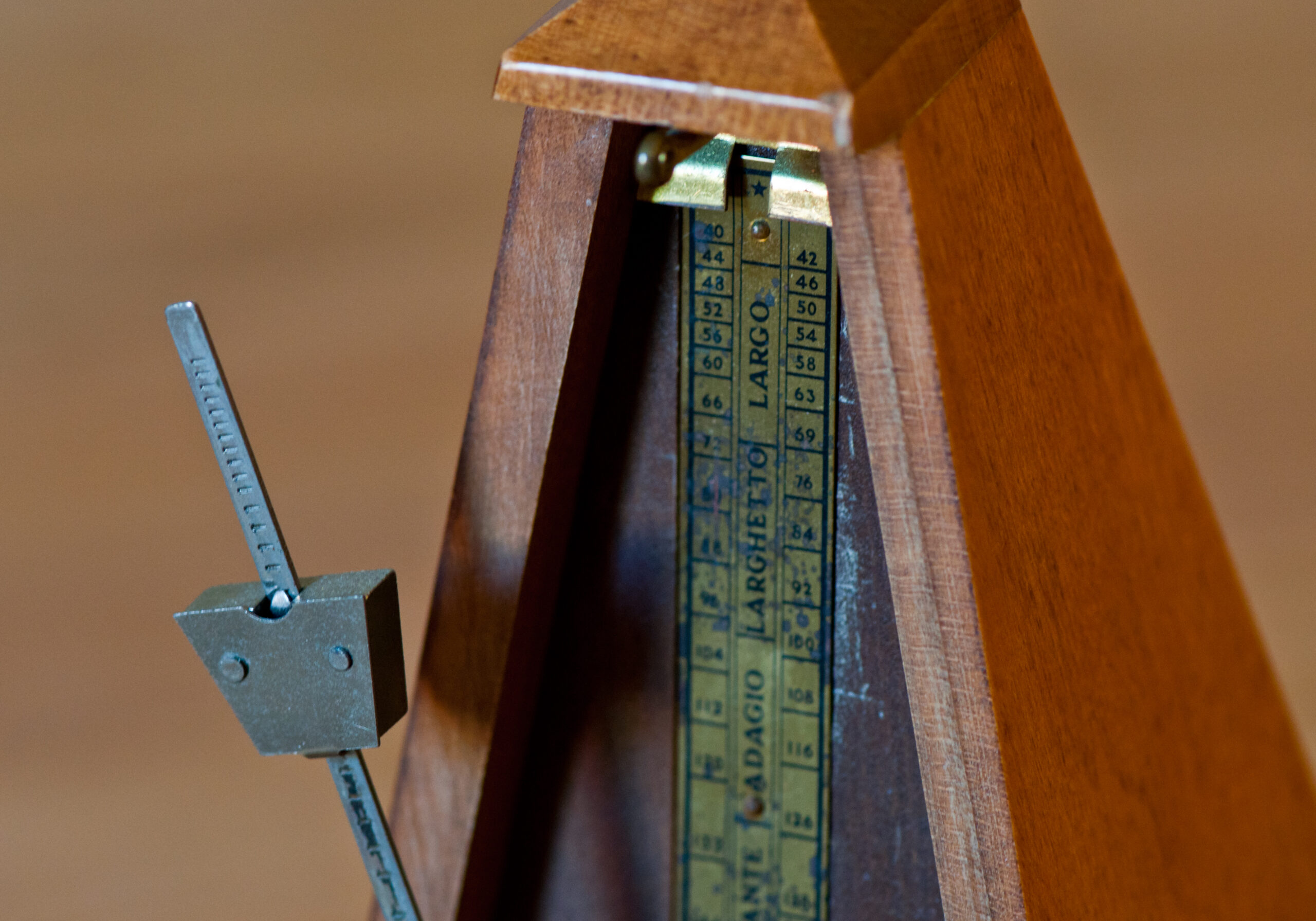Definition: A metronome is a mechanical or electronic device that produces regular, metrical ticks, settable in beats per minute. These ticks represent a fixed, regular aural pulse; some metronomes also include visual motion. Musicians use metronomes to maintain a consistent tempo and to practice rhythm.
Etymology and Origin:
- The word “metronome” comes from the Greek “metron,” meaning “measure,” and “nomos,” meaning “regulating” or “law.” So, it literally translates to “measuring device” or “device that regulates.”
- The concept of the metronome was developed in the early 19th century. The first mechanical metronome was patented by Johann Maelzel in 1815, known as “Maelzel’s Metronome.” This device was based on an earlier design by Dietrich Nikolaus Winkel.
- Before the invention of the mechanical metronome, musicians used various methods to maintain a consistent tempo, such as the pendulum





 Consider supporting the author with just $1 —a small gesture for you, but a significant boost for ongoing explorations and maintaining this space. Every dollar helps cover hosting, domain, and service fees.
Consider supporting the author with just $1 —a small gesture for you, but a significant boost for ongoing explorations and maintaining this space. Every dollar helps cover hosting, domain, and service fees.